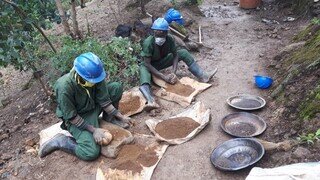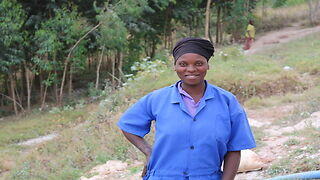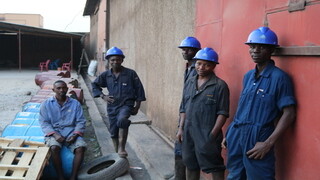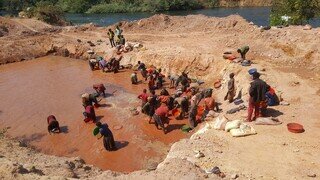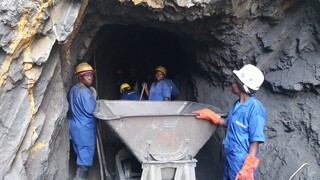There has been keen interest in the continued work of ITSCI during the COVID pandemic, demonstrating the clear value stakeholders place on our activities and ten years of progress. We are providing this update to transparently report on our funding status and our continued efforts to successfully manage ITSCI through this uncertain period. We are pleased to confirm that, currently, we are able to continue operations, although some reduced activity remains in place and there are challenging times still ahead.
In March 2020, the OECD Multi-Stakeholder Group (MSG) raised an early warning on initial COVID impacts on responsible supply chain initiatives, and miners’ livelihoods which they support. The MSG Call to Action underscored the need for emergency fundraising for these initiatives, including ITSCI. We considered health and business impacts on operating our global programme, introduced COVID controls and advice, and how to manage an estimated US$1.7m levy funding gap.
While we took necessary but unfortunate action to significantly reduce our activities and costs we also launched a fundraising campaign supported by Responsible Minerals Initiative (RMI), the International Tin Association (ITA) and the Tantalum-Niobium International Study Centre (T.I.C.). Through this two-month campaign in June and July, we raised US$75k from downstream industry. We thank all the contributors, including Acer, HP, Intel, KEMET Electronics, LG Electronics and Microsoft, as well as well as RMI, ITA and T.I.C. for their hard work and commitment. As noted by the OECD, it demonstrates leadership to support the most vulnerable in supply chains during these difficult times and we value all funds contributed. This has further positive impacts in re-invigorating dialogue on financial contribution and other support from downstream that could recognise the true cost of responsible provision of minerals. With recognition that funding is a critical aspect of enhanced cooperation, we are also discussing modes for the enhanced cooperation between upstream and downstream supply chain actors, in promotion of our shared values of transparency, credibility, and continual improvement.
Our upstream company members, although facing difficult trading conditions, responded to our financial need and made exceptional efforts to provide funds in advance of normal deadlines. Regional governments also gave their endorsements of support. Donors, although sympathetic to ITSCI’s situation, were not able to rapidly release funds through existing processes or mechanisms. All funds will directly contribute to restoring our temporarily reduced operations, including on the ground, and will be shown in our 2020 financial report.
Our initial impact estimates anticipated low 3T prices for an extended period and the spread of complete lockdowns to ITSCI mining areas for approximately four months (March to June), including a full lockdown in Rwanda and partial lockdown in DRC. Closures have been less severe, and for a shorter period than assumed. COVID protection measures also unexpectedly allowed some mining to continue even during the most challenging times. Mineral production has also been supported by a faster recovery of the tin price than anticipated; while unsustainably low between mid-March and end of May, the price then appeared to be somewhat boosted by COVID effects such as demand for tinned food and electronics for home working.
Our close cost control and financial monitoring, supported by cooperation from our partners, has significantly contributed to our current improved position. Early in the year we took difficult decisions to cut operational budgets by up to 50%, temporarily limiting the support we could provide to our members and government partners. Our field teams were reduced, resulting in gaps and delays in data and reporting, as well as less capacity to visit sites, follow up and monitor incidents through on-the-ground stakeholder engagement. We put other plans and activities such as data system investment and audits on hold.
We recognise that activities must be reinstated as soon as possible to maintain OECD aligned supply chain management. While not currently able to do as much, our programme is not under immediate threat. As a result of the combined fundraising and support efforts, as well as the less negative trading context than anticipated, ITSCI currently retains sufficient reserves to withstand the COVID pandemic in the short term. However, we are not complacent. The tin outlook longer term is less optimistic, and demand for other minerals may be weakening. Our biggest decrease in revenue is coming in Q3, even without any second wave of COVID or extended disruption. We continually monitor the situation and remain ready to take further necessary action.
We recognise that COVID has exposed many weaknesses in global business. The pre-COVID conversation on cost-sharing of due diligence across the supply chain is more important than ever. We are planning how to rebuild our cash reserve to ensure continued resilience to future shocks while continuing to highlight the need for long-term additional funding sources from downstream and/or government.
Roper Cleland, ITSCI Programme Manager, [email protected]
